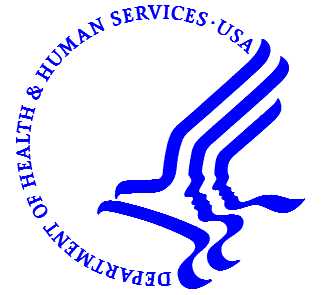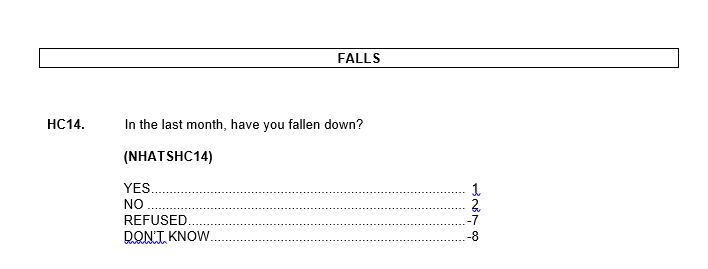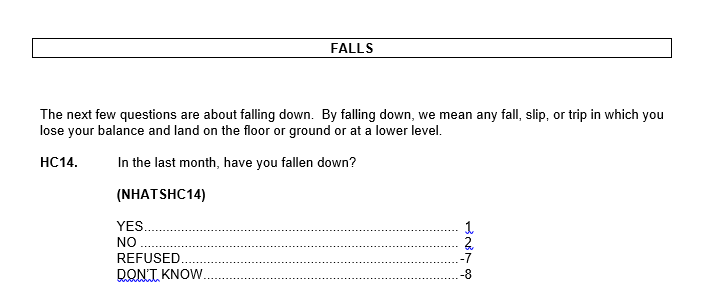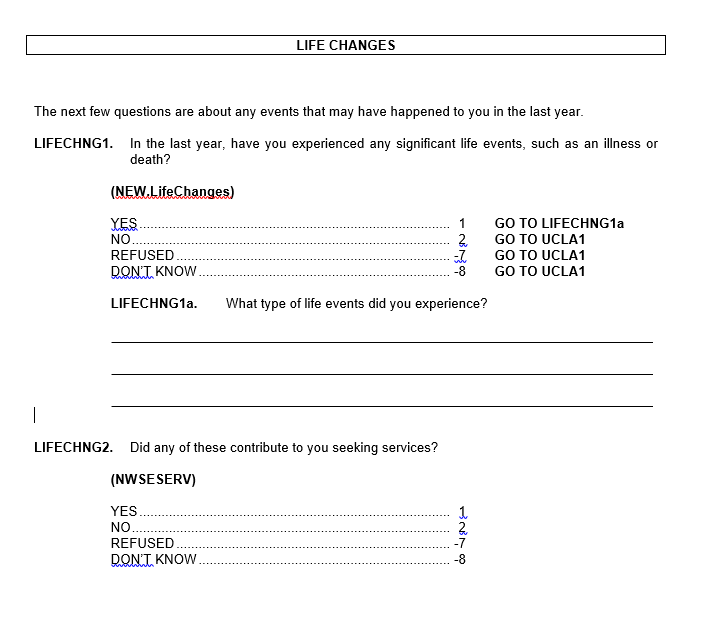Non-Substantive change NSOAAP
Non-Substantive Change - NSOAAP (12-17-18).docx
National Survey of Older Americans Act Participants
Non-Substantive change NSOAAP
OMB: 0985-0023
|
DEPARTMENT OF HEALTH & HUMAN SERVICES Administration for Community Living Washington, D.C. 20201 |
To: Julie Wise, OMB
Through: Mark Snyderman,
Deputy Director for Management and Budget, ACL CMB
Tomakie Washington,
Management and Program Analyst, ACL, CMB
From: Heather Menne,
Social Science Analyst, ACL, OPE
Date: December 18, 2018
Subject: Non-Substantive Modifications to the Information Collection Tools for the National Longitudinal Survey of Older Americans Act Participants (NSOAAP)
On April 11, 2018, OPE received Paperwork Reduction Act approval for the “National Longitudinal Survey of Older Americans Act Participants” (OMB Control Number: 0985-0023) – and this approval was for cognitive testing of the redesigned instrument with more than 9 respondents in 2018, and for the full survey to begin in 2019. The Terms of Clearance state:
OMB appreciates the thoughtful and rigorous manner in which ACL has developed plans to transition the National Survey of Older Americans Act Participants to a longitudinal study in order to provide added value to users and stakeholders. In order to align the OMB clearance process with the data collection schedule, ACL agrees to submit a one-year extension or revision request at the end of the current 3-year approval period, followed by a full 3-year clearance package when that one-year extension expires. At least 6 months prior to submission of the next 3-year OMB clearance package, ACL agrees to provide a report to OMB describing the initial results and lessons learned, as well as any revisions planned for the next round of OMB clearance.
This memo is not to initiate the revision request noted in the Terms of Clearance. The purposes of this memo are to: a) update OMB on the anticipated timelines related to the Terms of Clearance, and b) alert OMB to non-substantive changes to the information collection instrument.
Anticipated Timelines Related to the Terms of Clearance
Table 1 outlines ACL’s timing and actions related to the Terms of Clearance for the National Longitudinal Survey of Older Americans Act Participants.
Table 1. |
||
PRA Package |
Action |
Date |
Currently Approved Information Collection Information to be collected 2019-2021 |
ACL submitted PRA Package for revision of a currently approved collection |
2/22/18 |
OMB approved with change (OMB Control Number: 0985-0023, expires 4/30/21) |
4/11/18 |
|
ACL conducted cognitive testing of information collection tool |
Summer/Fall 2018 |
|
ACL submitting non-substantive modifications to OMB |
12/11/18 |
|
ACL collects baseline year of information collection instrument |
Summer 2019 |
|
ACL collects year 2 of information collection instrument |
Summer 2020 |
|
ACL submits a one-year extension or revision request in order to align with OMB clearance process with the data collection schedule |
Anticipated 10/30/20 |
|
Anticipated OMB approval of one-year extension |
Anticipated 1/15/21 |
|
ACL collects year 3 of information collection instrument |
Summer 2021 |
|
Next 3-year Information Collection Instrument to be collected 2022-2024 |
ACL submits PRA Package for next 3-year clearance package and report on initial results, lessons learned, and planned revisions |
Anticipated 6/1/21 |
Anticipated OMB approval of next 3-year clearance package |
12/1/21 |
Non-substantive Changes to the Information Collection Instrument
Cognitive testing of the information collection instrument is complete. As a result of the cognitive testing, two non-substantive modifications will be made to the instrument when data is collected beginning in 2019 (and again in 2020 and 2021) as part of the three-year longitudinal information collection. These non-substantive modifications are needed to clarify the questions being asked of respondents.
In brief, the non-substantive modifications are:
The addition of an introductory/transition statement that precedes questions about Falls. The original omission of the introductory/ transition statement was an oversight.
The re-stating of the question about any life events that may have motivated the respondent to seek services. Based on cognitive testing, respondents did not focus on a broader definition of “life events” and rather focused on the examples of illness and death included in the question. The re-stated question allows for an open-ended response about what led the respondent to seek services, and it is not expected that this modification will result in any change in burden. In this open-ended response format, a respondent is free to produce his/her own answer to the question. The interviewers are trained to select the option in the list that aligns with the response. In the rare case that a response is not one of the options listed, the interviewer will code the response as “other” and type the response shared by the respondent (the line marked as “specify”).
Table 2a has the original and then modified presentation for the first modification (addition of an introductory/transition sentence), and Table 2b has the second modification (re-stated question about events leading to seek services).
Table 2a. |
|
Original |
|
Modified |
|
Table 2b. |
|
Original |
|
Modified |
|
Please let us know if you have any questions or concerns. If you approve, we will enter the information into ROCIS.
Cc: Caldwell Jackson
| File Type | application/vnd.openxmlformats-officedocument.wordprocessingml.document |
| Author | Department of Health and Human Services |
| File Modified | 0000-00-00 |
| File Created | 2021-01-15 |
© 2026 OMB.report | Privacy Policy




